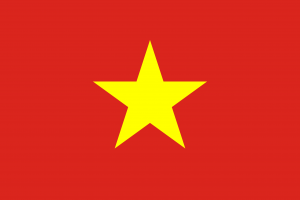Language/Vietnamese/Grammar/Possessive-Pronouns
 Հայերէն
Հայերէն Български език
Български език 官话
官话 官話
官話 Hrvatski jezik
Hrvatski jezik Český jazyk
Český jazyk Nederlands
Nederlands English
English Suomen kieli
Suomen kieli Français
Français Deutsch
Deutsch עברית
עברית हिन्दी
हिन्दी Magyar
Magyar Bahasa Indonesia
Bahasa Indonesia فارسی
فارسی Italiano
Italiano 日本語
日本語 Қазақ тілі
Қазақ тілі 한국어
한국어 Lietuvių kalba
Lietuvių kalba Νέα Ελληνικά
Νέα Ελληνικά Şimali Azərbaycanlılar
Şimali Azərbaycanlılar Język polski
Język polski Português
Português Limba Română
Limba Română Русский язык
Русский язык Српски
Српски Español
Español العربية القياسية
العربية القياسية Svenska
Svenska Wikang Tagalog
Wikang Tagalog தமிழ்
தமிழ் ภาษาไทย
ภาษาไทย Türkçe
Türkçe Українська мова
Українська мова Urdu
Urdu
| ◀️ Pronouns and Personal Pronouns — Previous Lesson | Next Lesson — Family Members ▶️ |
In this lesson, we will explore possessive pronouns in Vietnamese. Possessive pronouns are used to indicate ownership or possession of something. For example, "my book", "her car", "his dog", etc. Possessive pronouns can be a bit tricky to learn, but with practice, you can master them.
After mastering this lesson, these related pages might interest you: Future Tense Verbs & Adverbs.
Possessive Pronouns[edit | edit source]
To form possessive pronouns in Vietnamese, you simply add the pronoun after the noun. Vietnamese does not have a separate word for "my", "his", "her", etc. Instead, the word for the person is used. For example:
- Cái nhà của tôi. (My house.)
- Cái xe hơi của anh ấy. (His car.)
- Cái con chó của cô ấy. (Her dog.)
As you can see, the word "của" is used to show possession. The word "của" means "of" in English. So, "cái nhà của tôi" literally means "the house of me". This may seem strange to English speakers, but it is perfectly normal in Vietnamese.
Here are some more examples:
| Vietnamese | Pronunciation | English |
|---|---|---|
| Cái áo của tôi. | kaɪ ʔaw kɨ̂ə̯ kʊ̂a twə́j | My shirt. |
| Ngôi nhà của ông ấy. | ŋɔ̌j ɲâ kʊ̂a ʔowŋ zɐ̂j | His house. |
| Con sách của chị ấy. | koŋ sə́k kʊ̂a t͡ɕi ʔɛ́j | Her book. |
| Cái bàn của chúng tôi. | kaɪ bàn kʊ̂a t͡ɕuŋ twə́j | Our table. |
As you can see, the word "của" is used for all possessive pronouns in Vietnamese.
Practice[edit | edit source]
Here are some sentences to practice using possessive pronouns:
- Cái bút của tôi màu đen. (My pen is black.)
- Con mèo của chị ấy rất đáng yêu. (Her cat is very cute.)
- Cái áo của anh ấy màu xanh. (His shirt is green.)
- Cái cửa sổ của căn phòng này rất lớn. (The window of this room is very big.)
Summary[edit | edit source]
In Vietnamese, possessive pronouns are formed by adding the pronoun after the noun. The word "của" is used to show possession. Don't worry if it seems strange at first – with practice, you will get the hang of it!
Sources[edit | edit source]
- Say Pronouns in Vietnamese: I/You/We and My/Your/Our ...
- Vietnamese | Duolingo Tips and Notes Wiki | Fandom
- Vietnamese nouns – YourVietnamese
Videos[edit | edit source]
Possessive Pronouns in Vietnamese - Basic Vietnamese Grammar ...[edit | edit source]
Learn Vietnamese with TVO | Possessive Pronouns - YouTube[edit | edit source]
Other Lessons[edit | edit source]
- Conditional Mood
- 0 to A1 Course
- Present Tense Verbs
- Adverbs
- Questions
- How to Use Have
- Future Tense
- Gender
- Past Tense Verbs
- Modal Verbs
| ◀️ Pronouns and Personal Pronouns — Previous Lesson | Next Lesson — Family Members ▶️ |

